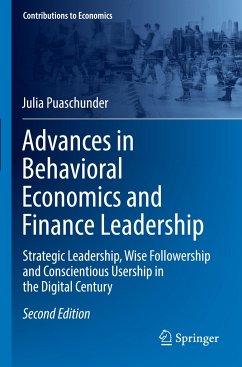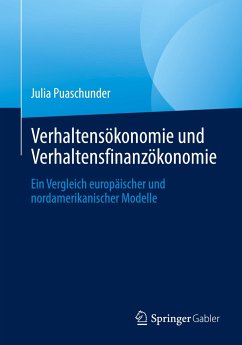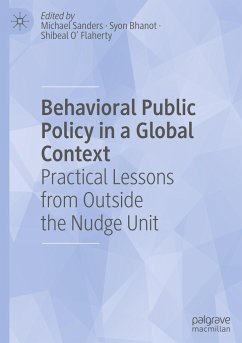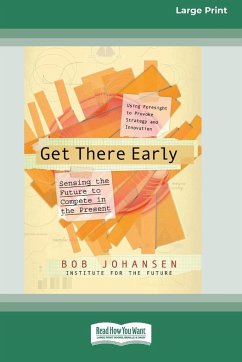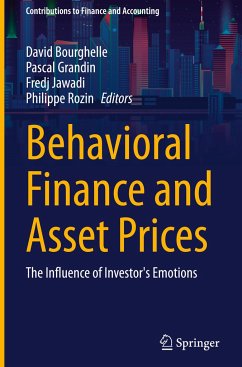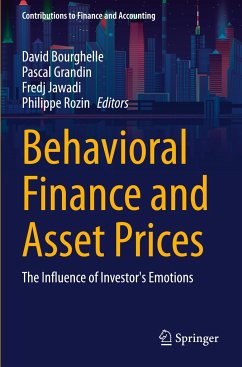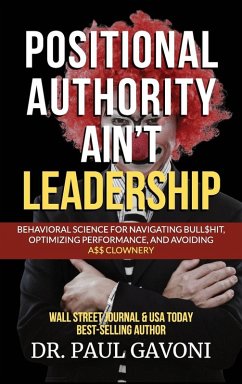
Behavioral Economics and Finance Leadership
Nudging and Winking to Make Better Choices

PAYBACK Punkte
38 °P sammeln!
This book explores human decision-making heuristics and studies how nudging and winking can help citizens to make rational choices. By applying the behavioral economics approach to political outcomes, it demonstrates how economics can be employed for the greater societal good.It starts with a review of the current literature on human decision-making failures in Europe and North America, presenting the wide range of nudges and winks developed to curb the harmful consequences of human decision-making fallibility. It then discusses the use of mental heuristics, biases and nudges in the finance do...
This book explores human decision-making heuristics and studies how nudging and winking can help citizens to make rational choices. By applying the behavioral economics approach to political outcomes, it demonstrates how economics can be employed for the greater societal good.
It starts with a review of the current literature on human decision-making failures in Europe and North America, presenting the wide range of nudges and winks developed to curb the harmful consequences of human decision-making fallibility. It then discusses the use of mental heuristics, biases and nudges in the finance domain to benefit economic markets by providing clear communication strategies. Lastly, the author proposes clear leadership and followership directives on nudging in the digital age. This book appeals to scholars and policy makers interested in rational decision-making and the use of nudging and winking in the digital age.
It starts with a review of the current literature on human decision-making failures in Europe and North America, presenting the wide range of nudges and winks developed to curb the harmful consequences of human decision-making fallibility. It then discusses the use of mental heuristics, biases and nudges in the finance domain to benefit economic markets by providing clear communication strategies. Lastly, the author proposes clear leadership and followership directives on nudging in the digital age. This book appeals to scholars and policy makers interested in rational decision-making and the use of nudging and winking in the digital age.





